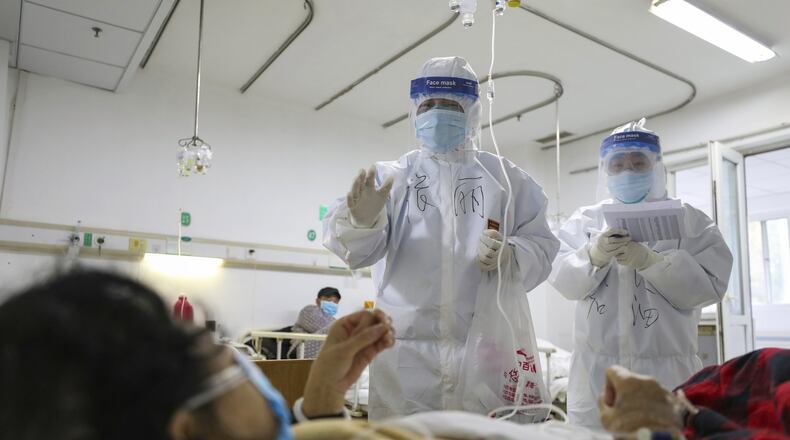The Georgia economy is decelerating, with a slowdown in job creation, but the biggest threat to continued growth is the deepening crisis caused by the coronavirus, according to a high-profile forecast.
The state, which has seen solid growth for a decade, is on track to add 54,500 jobs during 2020 and 47,400 jobs in 2021, compared with 70,000 last year, said Rajeev Dhawan, director of the Economic Forecasting Center at Georgia State University.
The fundamentals should keep fueling growth: low interest rates and continued federal deficits. But there is no way yet to calculate the impact of the spreading virus and its disruption of global supply chains.
"This is a fluid economic event and it is still playing out," Dhawan told about 200 people Wednesday at the center's quarterly forecasting conference. "When a hurricane is going through the system, all you can do is sit still and wait for it to move through."
The outbreak that began in China early this year forced factories to close as the government shut down movement of tens of millions of workers. Even now, as many plants reopen, they are reportedly struggling to fully staff operations.
The long travel time of shipments from Asia mean that U.S. companies have not yet seen a gap in goods that were ordered – shortfalls that could undermine commerce and production here. On Tuesday, the executive director of the Georgia Ports Authority told The Atlanta Journal-Constitution that he expects shipments into Savannah and Brunswick to be down 30% t0 40% in March and April.
“It’s going to cascade,” said Dhawan at Wednesday’s GSU conference. “There will be costs to the economy.”
How high those costs – and how long the pain lingers — depends largely on how long the effects linger and whether production in other nations in Asia is crimped by a lack of materials from China.
Yet potentially more damaging would be a spread of the contagion to the United States, something that is nearly inevitable, according to a warning this week from the Atlanta-based Centers for Disease Control and Prevention.
That could chill many activities, from shopping to conventions and sports attendance, as Americans worry about catching the virus from each other.
“Fear is the key, and we are not there yet,” Dhawan said. “Will we get there? The CDC says it’s a matter of time.”
Even before the virus broke out, consumer spending was moderating.
And because Atlanta is a core of global commerce, conventions and transportation, the region is vulnerable, he said. “We are a hospitality town. Delta Air Lines, the conventions, the hotels.”
Some sectors have already been struggling, even before coronavirus appeared as a threat.
For instance, manufacturing has shed several thousand jobs in Georgia in the past six months. The sector has been hurt by the U.S. tariff war with China and the rising value of the dollar, which makes Georgia exports more expensive overseas.
And while the trade war seems to have eased, the dollar is likely to get stronger as global investors put money into the United States to avoid greater risks elsewhere.
There are some economic upsides to the virus crisis.
For example, with much of the Chinese economy under a lockdown, energy demand has fallen and so has the price of oil. As oil prices slip, that effectively puts spending money in the pockets of American consumers.
The crisis is also likely to pressure the Federal Reserve to cut short-term rates later this year, which will make borrowing money cheaper, Dhawan said.
Projected job growth for Georgia
2020: 54,500
2021: 47,400
2022: 43,300
Source: Georgia State University’s Economic Forecasting Center
Projected share of new Georgia jobs paying at least $50,000
2020: 18.0%
2021: 18.3%
2022: 18.2%
Source: Georgia State University’s Economic Forecasting Center
About the Author
Keep Reading
The Latest
Featured



